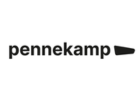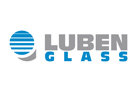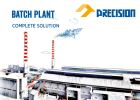Glass Futures, a Not-for-Profit membership Research Technology Organisation, published its report for the Department of Business, Energy and Industrial Strategy (BEIS) which answers some of the fundamental questions surrounding low carbon fuels within the UK glass industry, with learnings applicable to the global industry.
Funded by BEIS’s Energy Innovation Programme under their ‘Industrial Fuel Switching Competition: Phase 3’, Glass Futures worked with industry, academia, and its member organisations on a series of trials to advance alternative sustainable fuel technology options for the glass sector.
Glass Futures, currently building a £54 million 165,000 sq ft Global Centre of Glass Excellence in St Helens on Merseyside due for completion in 2023 to pioneer research into decarbonising glass and other industries, established:
Biofuels: The use of 100% liquid sustainable biofuels resulted in carbon savings of between 70-80% when compared with high carbon natural gas. The research proved the technical feasibility in major industrial trials for use in both flat and container glass at NSG-Pilkington UK, inventors of the float glass process, and leading container manufacturer Encirc.
Hydrogen: The potential for replacing natural gas with hydrogen has been demonstrated on an industrial scale and appears promising but the solution varied across the different sub sectors (float, container, etc). Further research is required to understand the effects of hydrogen combustion on glass melting and forming processes, glass quality, Nitrogen Oxide (NOx) emissions and refractory corrosion.
Electric melting: Some manufacturers are using increasing amounts of electric ‘boost’, with electricity supplying around 20-40% of melting energy. Increasing beyond this amount of boost requires significant changes to furnace design and other barriers exist including uncertainty around the rising cost of energy.
Economic modelling: Alongside a series of pilot scale tests, economic modelling and research into hybrid solutions from present day to 2100 found that payback on net zero investment is possible by 2060, based on retrofitting solutions and given a positive policy framework co-created by industry and government.
While the results of less commercially available and technically unproven options like biofuels and hydrogen were positive, the report concludes that options to decarbonise the industry won’t be restricted to one single solution due to geographic drivers such as localised hydrogen networks and electrical grid capacity.
It found that no single low-carbon route will be suitable for the 21 largest glass manufacturing sites in the UK. These account for 94% of the UK’s glass output and currently produce 1.3 megatonnes of carbon dioxide per annum, with 75-85% coming from the combustion of fuel.
Dr Palma González García, Combustion Technical Lead at Glass Futures said: “Our research indicates that significant future investigation is warranted and that options to decarbonise the glass industry won’t be restricted to a single solution. This gives the glass industry the opportunity to both decarbonise and respond to market factors in the drive to net zero by 2050 or sooner.
“A complex landscape exists around the many fuel switching solutions, and a number of key technical questions still remain regarding the long-term impacts of fuel switching choices. There are limited opportunities to change furnaces during uninterruptable production campaigns which run 24/7 for up to 20 years. Major changes to furnace design can only be executed between such campaigns and will incur significant costs.”
She added: “It’s clear there must be additional research to de-risk alternative technologies to enable the transition required. This is particularly true for technologies such as carbon capture utilisation and storage (CCUS) which is of interest to, but unlikely to be developed, by individual glass manufacturers because of the many technical barriers which have to be overcome.
“The uncertainty in long term energy policy and prices may affect the investments made by both domestic and international companies. New assets installed are likely to be based on incremental improvements to existing designs rather than revolutionary changes.
“This project has positively demonstrated that some fuel switching options exist today and, with the correct economic factors, could be taken up sooner than expected. In particular, the use of biofuels to decarbonise a part of the current fuel mix could yield beneficial carbon emission and economic outcomes.”
The BEIS IFS project has attracted critical global acclaim and it’s hoped the outputs of the report will provide a platform for discussions by policymakers as a blueprint to enable the uptake of key fuel switching options.

























